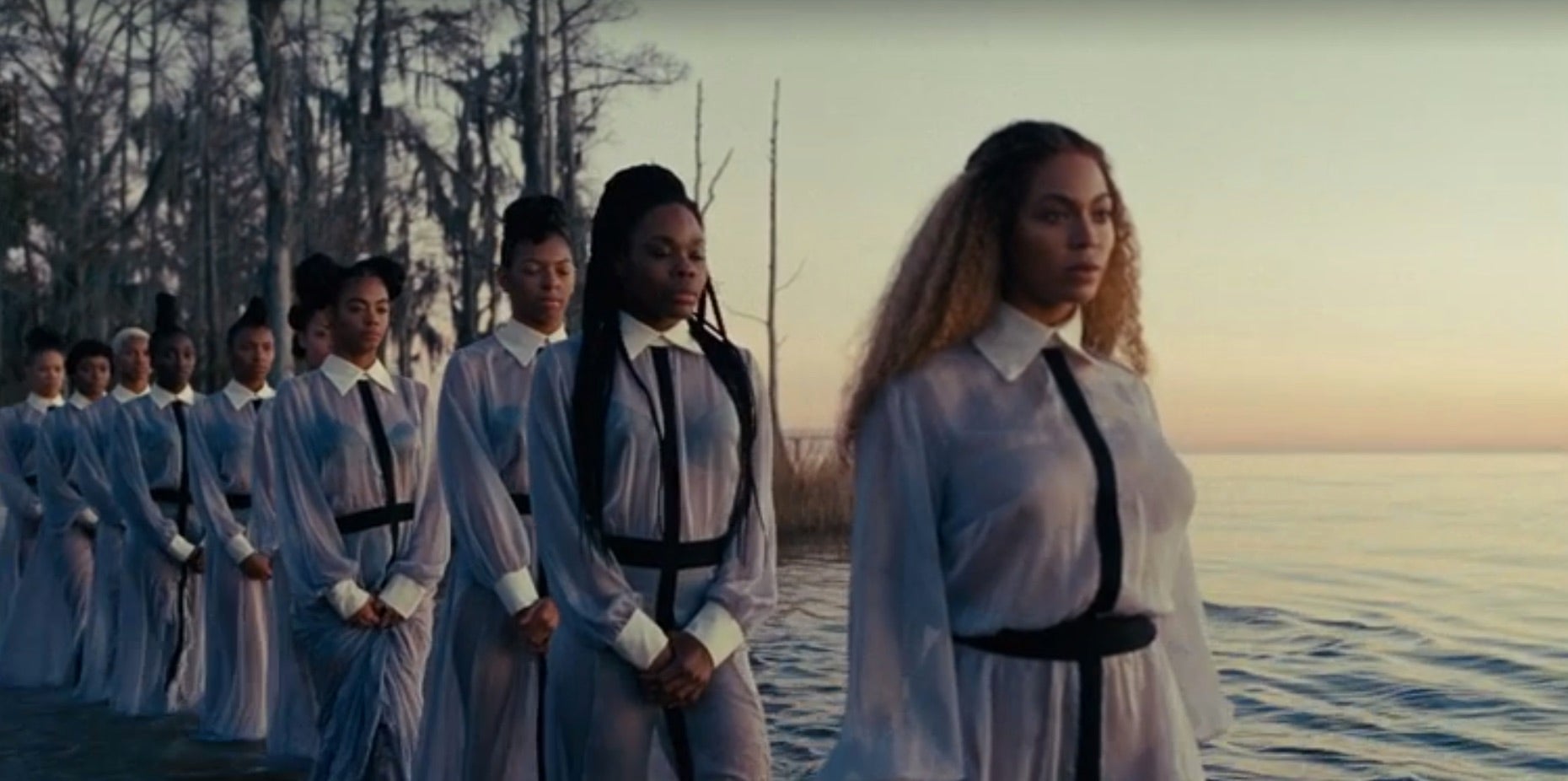
We finally know what Beyoncé’s highly-anticipated Lemonade premiere was about – and we are so here for it.
Lemonade is a celebration of Black art, Black history, Black love, Black beauty, Black pain and Black triumph. Like lemonade, the Black experience is both sweet and bitter at the same damn time.
From the Yoruba-inspired body art, to the West African Ankara gown, to her own southern heritage, Beyoncé visually highlights Black aesthetic in yet another visual album. In a sequence of music videos strung together in spoken word through eleven emotional stages – “Intuition”, “Denial”, “Anger”, “Apathy”, “Emptiness”, “Accountability”, “Reformation”, “Forgiveness”, “Resurrection”, “Hope,” “Redemption” – Lemonade picks up where “Formation” left off.
The Black woman, “the most disrespected, unprotected, neglected person in America,” as described in the Malcolm X audio clip of “Anger,” is also the “alchemist,” of “Redemption.”
“[She] spun gold out of this hard life. Conjured beauty from the things left behind. Found healing where it did not live. Discovered the antidote in [her] own kitchen. Broke the curse with [her] own two hands. [She] passed these instructions down to [her] daughter, who then passed it down to her daughter.”
As Black women we endure heartbreak and loss, as represented by the drowning imagery to describe the internal turmoil of infidelity or the mothers of Trayvon Martin and Mike Brown, who hold portraits of their slain sons; but our strength affords us the ability to build and create, as represented in the cameos of Serena Williams, Amandla Stenberg, Zendaya, Ibeyi, Chantelle Brown and even the not-so-hard-to-miss, strategically placed Nina Simone album.
Getting into formation, much like your family lemonade recipe, is generational. It was taught, learned and passed down from mother to daughter.
What did you think of Lemonade?
WANT MORE FROM ESSENCE? Subscribe to our daily newsletter for the latest in hair, beauty, style and celebrity news.
